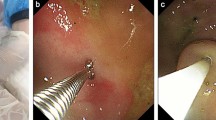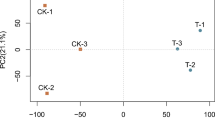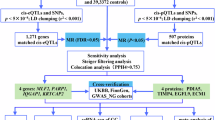Abstract
Muscarinic receptors play key roles in the control of gastrointestinal smooth muscle activity. However, specific physiological functions of each subtype remain to be determined. In this study, the nonselective cation channel activated by carbachol (ICCh) was examined in circular smooth muscle cells of the guinea pig gastric antrum using patch-clamp technique. 4-DAMP inhibited ICCh dose- dependently with IC50 of 1.1 ± 0.1 nM (n = 6). GTPgS- induced current, however, was not inhibited by 10 nM 4-DAMP. ICCh was not recorded in pertussis- toxin (PTX)-pretreated smooth muscle cells of gastric antrum. ICCh values in response to 10 mM CCh at a holding potential of 60 mV were -330 32 pA (n=4) and -15 ± 3 pA (n = 6) in the control and PTX-treated cells, respectively (P<0.01). Sensitivities to nanomolar 4-DAMP and PTX suggest the possible involvement of m4 subtype. Using sequence information obtained from cloned guinea pig muscarinic receptor genes, it is possible to amplify the cDNAs encoding m1-m5 from guinea pig brain tissue. Single cell RT-PCR experiments showed that all five subtypes of muscarinic receptor were present in circular smooth muscle cells of the guinea pig gastric antrum. Together with our previous results showing that Go protein is important for activation of ACh-activated NSC channels, our results suggest that ICCh might be activated by acetylcholine through m4 subtype as well as m2 and m3 subtypes in guinea-pig stomach.
Similar content being viewed by others
Article PDF
Author information
Authors and Affiliations
Rights and permissions
This is an Open Access article distributed under the terms of the Creative Commons Attribution Non-Commercial License (http://creativecommons.org/licenses/by-nc/3.0/) which permits unrestricted non-commercial use, distribution, and reproduction in any medium, provided the original work is properly cited.
About this article
Cite this article
So, I., Yang, D., Kim, H. et al. Five subtypes of muscarinic receptors are expressed in gastric smooth muscles of guinea pig. Exp Mol Med 35, 46–52 (2003). https://doi.org/10.1038/emm.2003.7
Published:
Issue date:
DOI: https://doi.org/10.1038/emm.2003.7
Keywords
This article is cited by
-
Muscarinic receptors: their distribution and function in body systems, and the implications for treating overactive bladder
British Journal of Pharmacology (2006)
-
Roles of M2 and M3 muscarinic receptors in cholinergic nerve‐induced contractions in mouse ileum studied with receptor knockout mice
British Journal of Pharmacology (2006)



